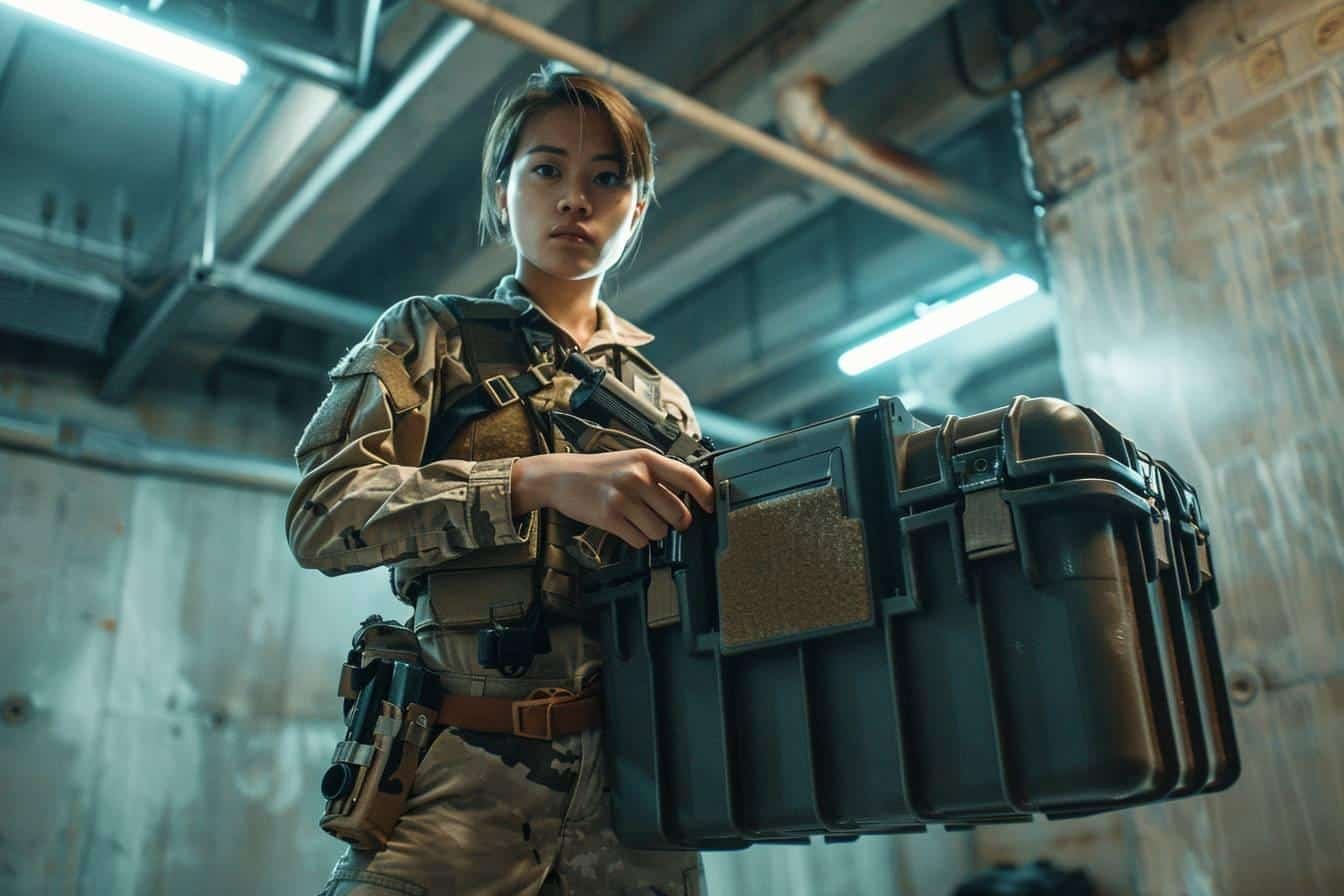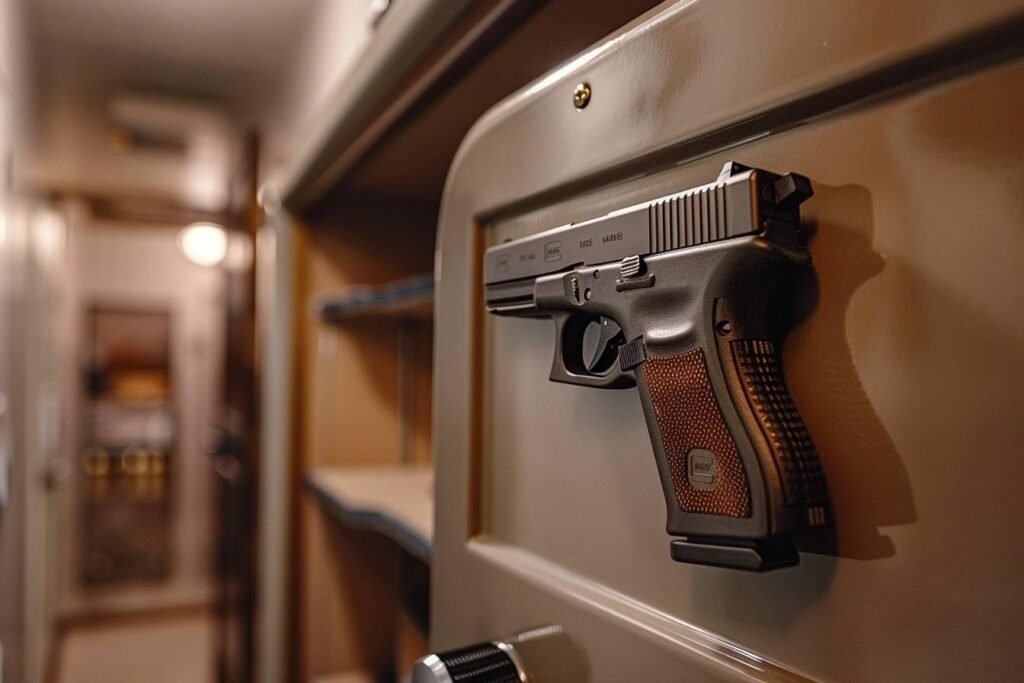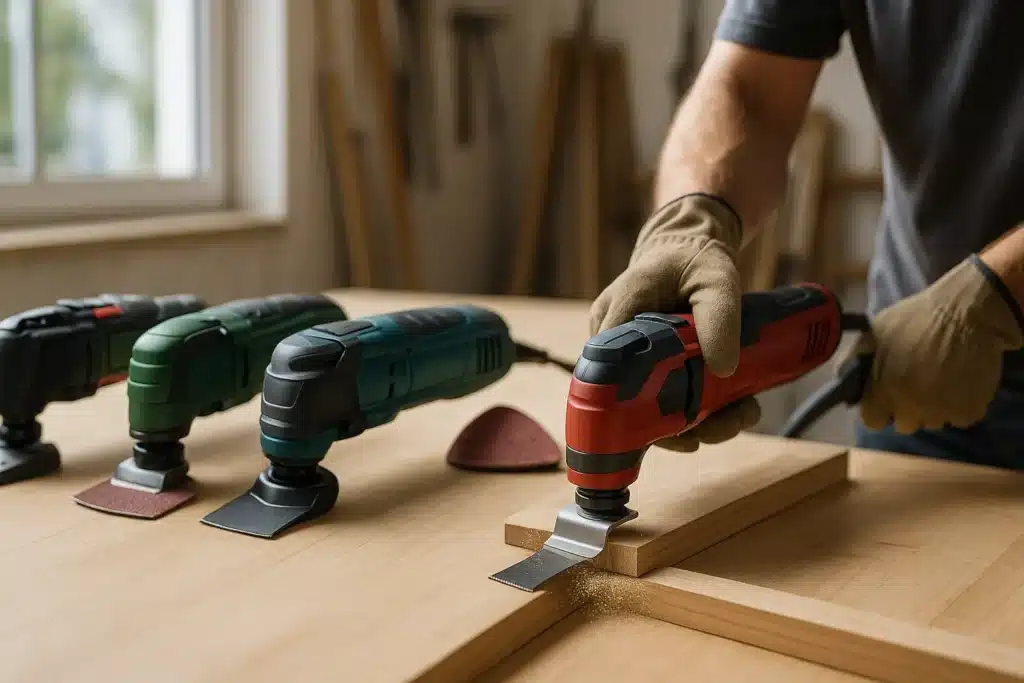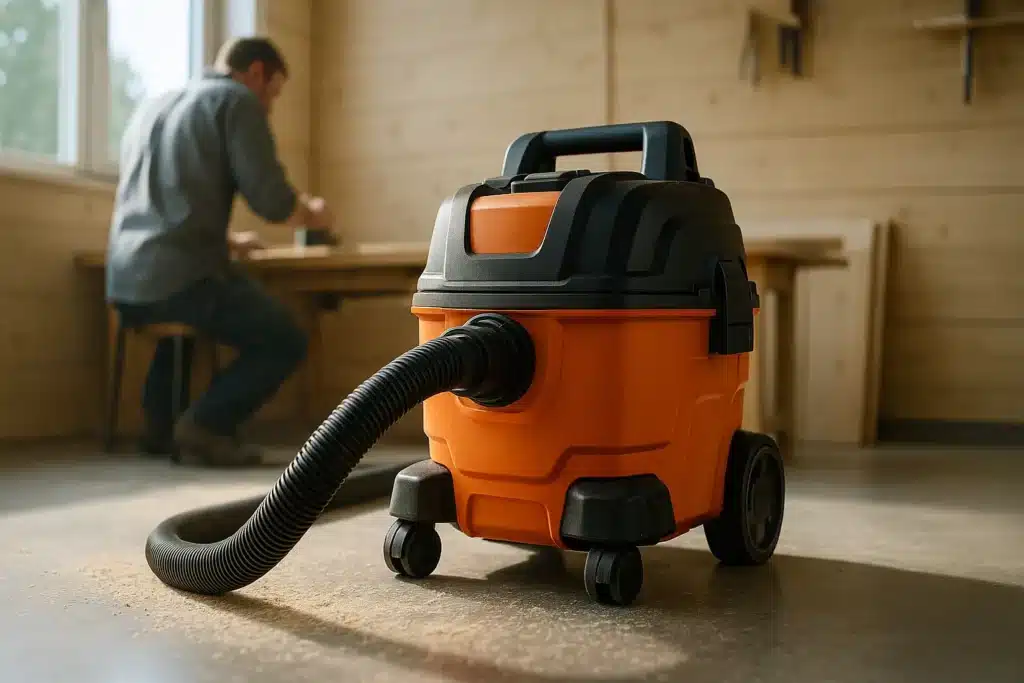The article in brief
This article details the essential aspects of securing weapons at homeThis is a crucial practice for any homeowner. Here are the key points:
- Respect for legal obligations depending on the category of weapon
- Use ofsafety equipment adapted (safe, strongbox)
- Separation arms and ammunition
- Adoption of a global safety philosophyincluding educating those around them
- Importance of regular maintenance and keep abreast of legal developments
Ah, my friends! Here you are in my humble armoury to talk safety. Let me tell you, as someone who's been a gun enthusiast since my youth, that securing your weapon at home is as crucial as knowing how to handle it. So make yourself comfortable, and let's break it all down together!
The legal bases for stockpiling weapons
Before delving into the heart of the matter, let's talk a little law. Yes, even if I prefer the smell of gunpowder to that of legal codes, it's essential!
Weapons categories and obligations
Each category of weapon has its own storage rules. For category C weapons, for example, you have several options:
- A safe or strongbox
- Dismantling an essential part to be kept separately
- A device to prevent the weapon from being removed
Believe me, I've seen customers come up with some crazy ideas. One guy wanted to hide his rifle in a fake plumbing pipe. Creative, but not legal!
Separation of weapons and ammunition
The law is clear: ammunition must be stored separately from weapons. It's like separating salted butter from sweet butter in your fridge. It prevents unfortunate mixtures!
Restricted access: the key to security
Unrestricted access to weapons and ammunition is strictly prohibited. Gone are the days of hanging your rifle over the fireplace! Today, we play the discretion and safety card.
Safety equipment and methods
Now that we've laid the legal foundations, let's look at how to put it all into practice. This is where my experience as a gunsmith will come in handy!
The safe: your best ally
A good safe is like a bodyguard for your weapons. Here's a quick comparison of the most popular options:
| Type | Benefits | Disadvantages |
|---|---|---|
| Mechanical safe | Reliable, no battery | Slower opening |
| Electronic safe | Quick opening | Depends on a power supply |
| Strong cabinet | Large capacity | Bulky |
Pro tip: always fix your safe to the wall or floor. I once knew a customer whose safe was taken during a burglary. Suffice to say, he wasn't happy!
Ingenious alternative solutions
If a safe isn't your cup of tea, there are other options:
- Partial dismantling: remove an essential part and store it elsewhere
- The secure rack: with a good chain, it's effective
- Anti-humidity systems: essential for preserving your weapons
I even have a customer who has cobbled together a system using fishing line and tin cans. Not very elegant, but it does the job as a complement to other measures!
Safety, yes, but with common sense
Remember: your weapon must remain accessible in case of legitimate need. I've always said to my customers: "Keep it safe, but keep it practical". It's a delicate balance, but a crucial one.
If you want to find out more about safety on the move, take a look at our guide on how to transport your weapon safely. It's just as important!

Beyond storage: a security philosophy
Keeping your weapons safe doesn't stop with good storage. You need to adopt a whole new mentality!
Educating those around you
Talk to your family and friends about the presence of weapons in your home. Explain the dangers and precautions. I've seen too many accidents caused by ignorance. Knowledge is the best safety!
Regular maintenance
A well-maintained gun is a safe gun. Clean it regularly and check its condition. It's like a car: neglect can be costly.
Stay informed
Laws evolve and so do techniques. Keep up to date! And to keep up to date, read our article on new arms laws in 2024. Things are moving fast in our field!
Final thoughts from an old-timer
After years of advising enthusiasts like you, I can tell you that securing your weapon at home is an art. It's a combination of common sense, rigour and adaptation.
Always remember that your gun is not a toy. It is a tool that requires respect and care. With the right practices, you can live your passion with peace of mind while ensuring the safety of all.
So whether you're a marksman, a hunter or a collector, take care of your guns, and they'll take care of you. And don't forget: the best safety is the one you apply every day, without exception.
On that note, I'll leave you to ponder. And if you have any questions, you know where to find me: behind my counter, always ready to share a good piece of advice... or a good story!
Additional sources:



